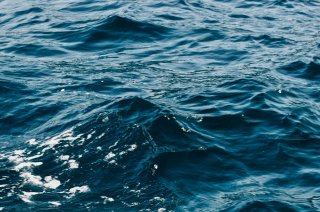
category_news
ABS and marine biodiversity beyond national jurisdiction
Not all genetic resources are obtained from areas within the national jurisdiction of countries. The recently adopted BBNJ (Biodiversity Beyond National Jurisdiction) Treaty includes provisions on access and benefit-sharing of marine genetic resources of areas beyond national jurisdiction and their associated digital sequence information (DSI).
The BBNJ Treaty
The recently adopted BBNJ (Biodiversity Beyond National Jurisdiction) Treaty, also known as Treaty of the High Seas, aims to ensure the conservation and sustainable use of marine biological diversity of areas beyond national jurisdiction. Important elements of the BBNJ Treaty are the setting up of a procedure to establish large-scale marine protected areas, a system of sharing benefits from marine genetic resources, capacity building and technology transfer, and rules for conducting environmental impact assessments before carrying out activities.
The official name of the BBNJ Treaty is the ‘Agreement under the United Nations Convention on the Law of the Sea on the conservation and sustainable use of marine biological diversity of areas beyond national jurisdiction’. It was adopted on 19 June 2023 and is an international, legally binding instrument to better implement the United Nations Convention on the Law of Sea (UNCLOS). It will enter into force after sixty Parties have ratified the Treaty.
Scope of the BBNJ Treaty
The BBNJ Treaty applies to activities with marine biological diversity of areas beyond national jurisdiction (BBNJ) by natural or juridical persons within the jurisdictions of Parties to the Treaty.
In terms of geographic scope, the BBNJ Treaty applies to a) all parts of the sea that are not included in the exclusive economic zone (EEZ), the territorial sea or in the internal waters of a State, or in the archipelagic waters of an archipelagic State (“the high seas”), and b) the seabed and ocean floor and subsoil thereof, beyond the limits of national jurisdiction (“the Area”).
BBNJ Treaty and benefit-sharing
The BBNJ Treaty includes a framework intended to achieve fair and equitable sharing of non-monetary and monetary benefits arising from activities with respect to marine genetic resources (MGR) and their associated digital sequence information (DSI) of areas beyond national jurisdiction.
Such activities include, for example, the collection of MGR and associated DSI, storage and deposition of materials and generated DSI, and utilisation (including commercialisation). In the BBNJ Treaty, benefit-sharing is not directly connected to access (the two are ‘decoupled’).
Scope of the BBNJ Treaty’s benefit-sharing provisions
The benefit-sharing system of the BBNJ Treaty applies to MGR and their associated DSI of areas beyond national jurisdiction.
Marine genetic resources are defined in the BBNJ Treaty as “any material of marine plant, animal, microbial or other origin containing functional units of heredity of actual or potential value”. Utilisation of MGR is defined as: “to conduct research and development on the genetic and/or biochemical composition of marine genetic resources, including through the application of biotechnology”. The term ‘digital sequence information’ is not defined in the BBNJ Treaty.
The BBNJ Treaty applies to all MGR and associated DSI collected and generated after the entry into force for the respective Party. The application of the BBNJ Treaty extends to the utilisation of MGR and associated DSI collected or generated before entry into force, unless a Party makes an exception in writing when joining the BBNJ Treaty.
Non-monetary benefit-sharing
Non-monetary benefits listed in the BBNJ Treaty include access to samples and data, transfer of marine technology, capacity-building and technical and scientific cooperation.
Monetary benefit-sharing through financial mechanism
Monetary benefit-sharing is to take place through a financial mechanism, which will be used to help developing countries and contribute to the conservation and sustainable use of marine biological diversity. This mechanism will initially be filled through financial contributions of developed country Parties, with the Conference of the Parties later on deciding on the modalities of monetary benefit-sharing. An ABS committee was installed to establish guidelines for benefit-sharing, providing transparency and ensuring a fair and equitable sharing of benefits.
The financial mechanism shall be used to fund capacity-building projects, assist developing country Parties in implementing the BBNJ Treaty, support conservation and sustainable use programmes by Indigenous Peoples and local communities, support public consultations at the national, subregional and regional levels, and fund any other activities as decided by the Conference of the Parties.
What to do when you collect, store, or utilise MGR and associated DSI?
When you carry out activities with MGR and associated DSI, certain information should be notified to the Clearing-House Mechanism prior to and/or after the activity. Article 12 of the BBNJ Treaty lists the relevant information for different scenarios. Additionally, you may be required to conduct environmental impact assessment of planned activities with BBNJ in areas beyond national jurisdiction.
The Clearing-House Mechanism was established to serve as a centralised platform to access, provide and disseminate information on BBNJ activities taking place and links to other relevant platforms, facilitate capacity-building, cooperation and collaboration, and foster transparency. This platform will help you determine what obligations you have.
If you wish to access traditional knowledge associated with BBNJ that is held by Indigenous Peoples and local communities, you need to obtain prior and informed consent or approval of these groups and arrange mutually agreed terms.
Obligations of Parties to the BBNJ Treaty
Every Party is required to implement the relevant provisions of the BBNJ Treaty into national legislation, which must include legally binding obligations for natural and juridical persons carrying out BBNJ activities that are under the jurisdiction or control of that Party. Every Party is responsible for monitoring compliance with the BBNJ Treaty for activities that are under its jurisdiction or control. This means, for example, that if you carry out activities with BBNJ in the Netherlands, the Dutch government must monitor your compliance with the BBNJ Treaty.
Differences between the BBNJ Treaty and the Nagoya Protocol
The benefit-sharing provisions of the BBNJ Treaty apply to activities with marine genetic resources: not only utilisation of MGR, but also in situ collection and storage. The Treaty therefore differs from the Nagoya Protocol and the EU ABS Regulation (Regulation (EU) 511/2014), which only apply to the utilisation of genetic resources.
The Nagoya Protocol prescribes a direct link between access and benefit-sharing, based on Prior Informed Consent (PIC) and Mutually Agreed Terms (MAT). When applying for access (PIC), a user must make benefit-sharing arrangements with the provider (in the MAT). In the BBNJ Treaty, access to genetic resources and benefit sharing are not directly linked.
The Nagoya Protocol applies only to genetic resources over which Member States exercise sovereign rights, covering genetic resources that are within a Member State’s national jurisdiction. This means that activities taking place in marine areas beyond national jurisdiction are not in scope of the Nagoya Protocol, and therefore, by extension, also not in scope of the EU ABS Regulation.
A final difference is that the benefit-sharing provisions of the BBNJ Treaty include digital sequence information (DSI) on marine genetic resources, while the Nagoya Protocol and the EU ABS Regulation (currently) only apply to the genetic resources.
